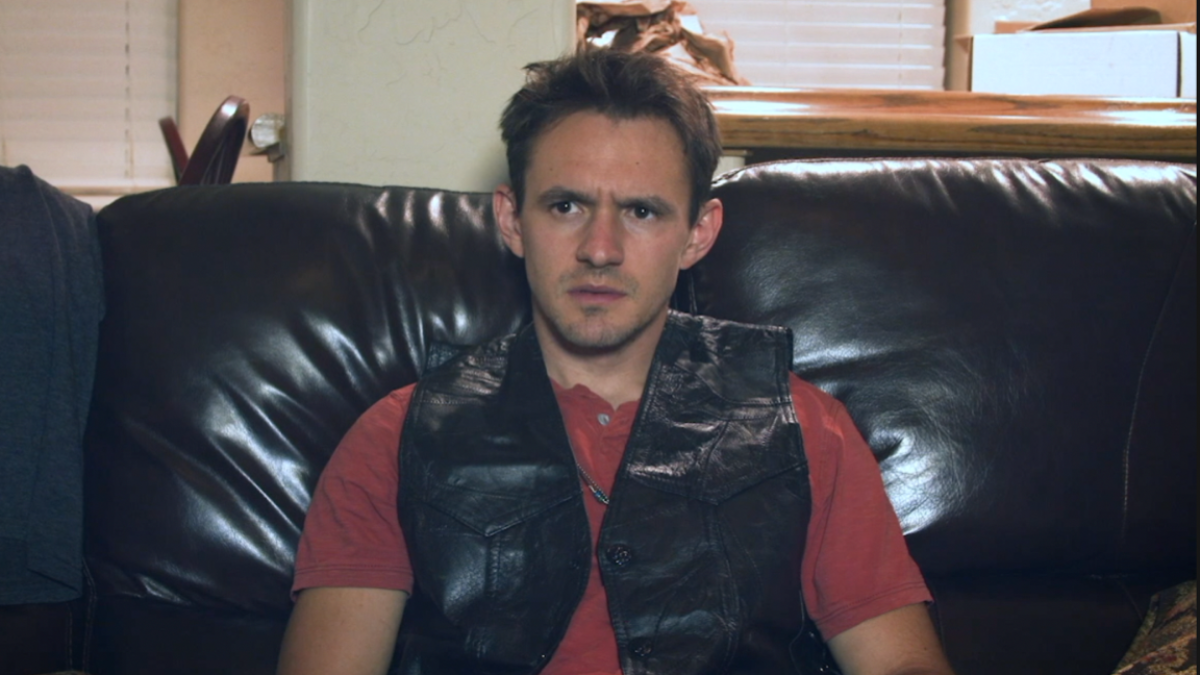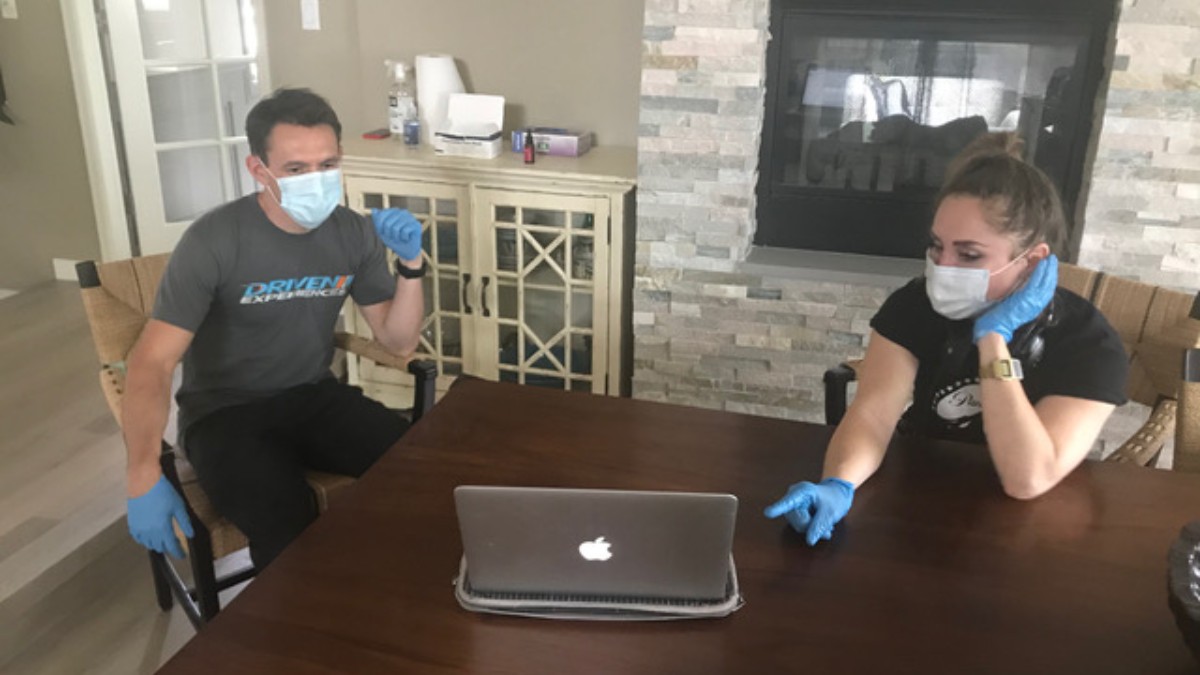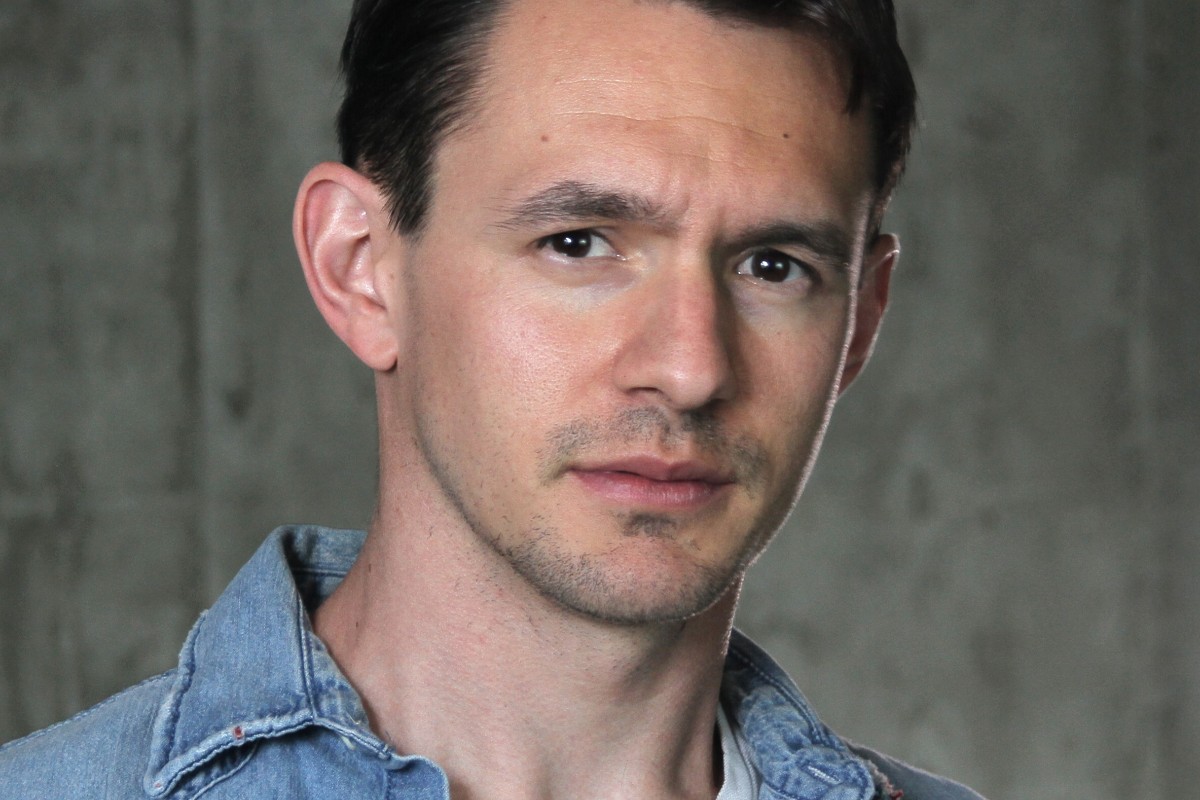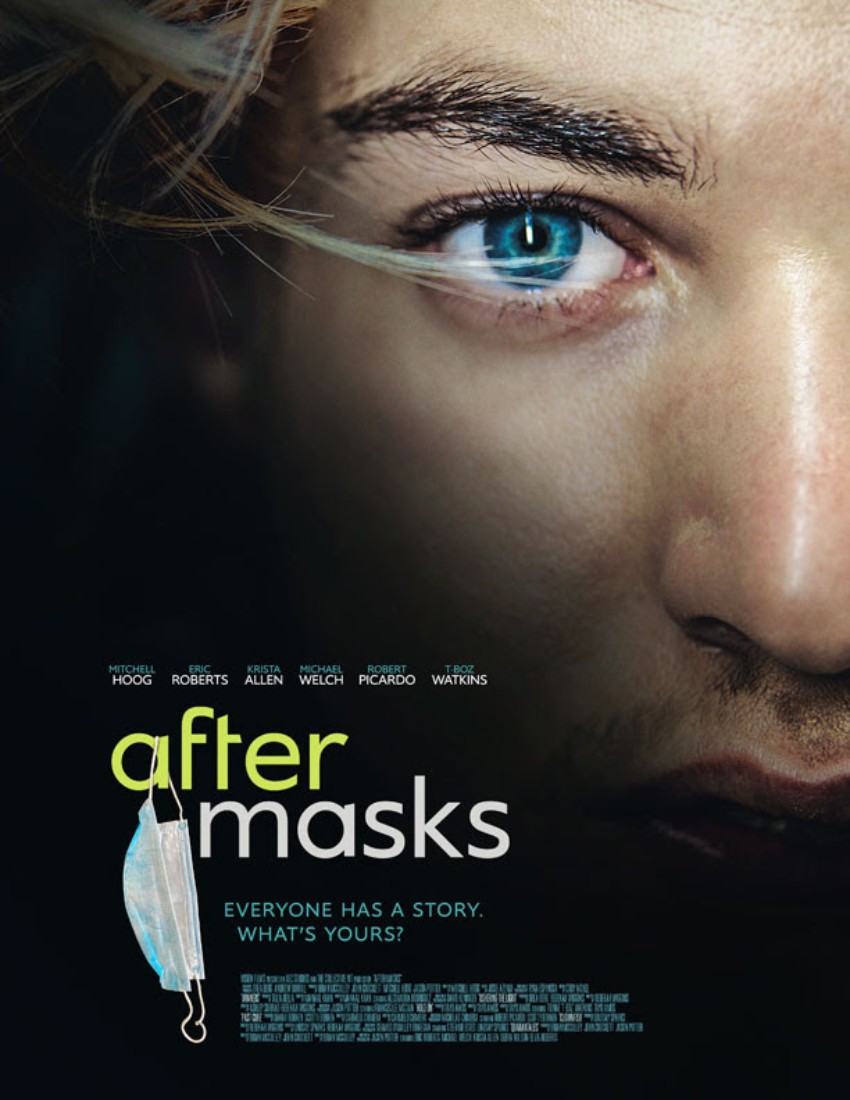
I am Jason Potter is an Actor and Producer on AFTER MASKS, Director of Photography on the USHERING THE LIGHT segment, playing the role of ANDY in the QUARANTALES segment. After Masks is an anthology film comprised of 6 short films pulled together with a through-line. Each segment was done with a different creative team and then masterfully linked together to form a series of stories about individuals’ lives and struggles during this unprecedented time of COVID-19.
indieactivity: What’s your experience working story, screenplay, production, premiere, and marketing for After Masks?
Jason Potter (JP): From beginning to end, there was nothing typical about this production due to the COVID restrictions. From Zoom calls meeting the team to Zoom calls shooting the movie. There was a level of remoteness throughout the production that was definitely odd to get used to. Each segment was run a little different, but generally there would be a Zoom call on set with the director, writer, and sometimes even a consulting makeup artist watching the scenes live from home. The only people on set most of the time were the actors, the DP, and the sound mixer, all having to wear masks and all having to stay 6 feet away from each other.
The earlier productions were lucky because the restrictions, depending on location, continually changed the further into production we got. At one point it was only cohorts allowed to be in a location at once, meaning we would have to ship the equipment to the actors’ locations and we would have to walk them through setting things up so they could shoot themselves! It was extremely important that we made this film following all guidelines and the constantly changing rules made it almost a game. It was like no project I have experienced before. And for that I feel that adds its own artistic value to the film.
Official Trailer for AFTER MASKS from producers John Crockett, Brian McCulley, and Jason Potter
How did you put the crew and cast together? Did you start writing with a known cast?
Jason Potter (JP): Most everyone involved in producing these segments was someone we have worked with before in some capacity. For example, Rebecca Wiggins (director of Clownfish and Ushering the Light segments) was my Chubbuck Technique acting coach. The cast was partially put together the same way; many of whom were classmates from Brian McCulley and John Crockett’s acting studio. But we did want to cast some new faces, as well as other name actors so we did have a bit of a casting process.
What and how long did it take to complete the script? (Was it a team effort or was it solo?)
Jason Potter (JP): It was very much a team effort. Since each segment had its own creative team, communication was crucial in keeping a connection to every team’s work as well as the overall film. Before writing began, we had a Zoom meeting with the producers of each team and discussed story ideas. We wanted to have unique stories that spoke to each creator but also didn’t overlap any other segment. That would have seemed like the challenging part, but we luckily have such a wide range of imaginations that right off the bat the ideas differed beautifully. Then the clock began, and all scripts began the writing process simultaneously.
What was the first project out of the gate?
Jason Potter (JP): Clownfish, I believe, finished their script first and was the first to begin principal photography. Lindsay Spark’s team was extremely organized and became a great example on the process of shooting efficiently during the restrictions. Time was against us, yet every team did an outstanding job getting things done while creating amazing art.

During the film production, what scene (that made the cut) was the hardest to shoot? And why?
Jason Potter (JP): This may not have been the most difficult, but I remember when we were shooting Ushering the Light, and one of the very first shots was a closeup on the children’s fingerprints on the glass door. We tried everything to be able to see the handprints on that door. Used different oil mixtures, different angles, literally everything. 2 hours later, our director Rebecca was laying on the ground holding a light, the sound guy was holding a monitor, and the sun was in a completely different place in the sky. We got the shot, but we started our first day hours behind schedule. On second thought, that may have been the most difficult.
What worked better in this latest production that mightn’t have worked so well in the last one you did?
JP: Though this was an incredible experience, and I wouldn’t trade it for the world, I would love to go back to shooting with a director in the SAME ROOM. It really is impossible to compare, that’s how unique this experience was.
You must have donned several hats on this film, the measure of your input required intellect, effort, tenacity, skill. What did it take you to put out all these qualities to get the film done?
JP: “Yes and…” it’s an improv technique, always taking on a task without letting it take away from another. This project may have placed the most hats on me thus far. It wasn’t just the roles I had listed earlier, it was the little jobs like helping prep the deliverables for distribution that really challenged me. Making a film is just constant problem solving and it can be a death by a thousand paper cuts. I tend to feel like I need to solve every problem everywhere (probably partly why I became a producer) but it really comes down to surrounding myself with an incredible team and enforcing patience with myself that is key.

What about independent filmmaking and the business do you still struggle with?
JP: The hardest part of independent filmmaking is having to get the most out of every shot with a limited budget. In blockbuster films, there is a person for every position, sometimes even two! But on a lower budget film, the teams are forced to be smaller, and people have to wear multiple hats. It is a lot to balance sometimes and can be overwhelming. I’d be lying if I told you I didn’t have those days where I had my head face down in my palms. It’s all part of it and I can easily say I’m a better producer for it.
Where do you think your strengths lie as a producer?
JP: Communication. The art of communication is such a small detail but is massively important. When deadlines get tough and demands become high, the difference between a quality product and a bad one comes down to keeping the cast and crew working on it feeling properly informed. That has become one of my greatest strengths that comes from experiences like this. This is all the stuff they can’t teach in film school.
How much did you go over budget? How did you manage it?
JP: A lot. Ha ha. Thankfully, we have an amazing EP that truly believed in this project.
How important is marketing? Do you think a project can make a dent without it nowadays?
JP: I believe marketing is more important than ever. With all the streaming services out there, there is so much content that it’s hard to even keep up. We are in a new golden age of television and without marketing, a project can just sink to the bottom of the Netflix scroll wheel.

Tell us about marketing activities or efforts on this project – and how it worked or didn’t work?
JP: We have a very large cast, so we have a great opportunity to utilize social media. Having stars on the project too such as T-Boz and Eric Roberts just doubles as an opportunity to get the film seen. We are still in the midst of marketing so time will tell.
What do you hope audiences will get from the presentation of your film?
JP: I hope this film makes people feel. There is a wide range of emotions and stories that almost everyone can relate to. And if this film really helps someone, even just one, then it was absolutely worth it.
What else have you got in the works?
JP: I’m producing and acting in a feature film called “Sin Eater” coming out this fall. It’s a horror-thriller so keep an eye out for that.
Tell us what you think of the interview with Jason Potter. What do you think of it? What ideas did you get? Do you have any suggestions? Or did it help you? Let’s have your comments below and/or on Facebook or Instagram! Or join me on Twitter.
Follow Jason Potter on Social Media
Website
IMDb
Facebook
Instagram
Where We Stay by Florence Bouvy to Screen at CIFF
Where We Stay | CIFF Selected Drama About Friends Hiding Unspoken Truths
This Place by V.T. Nayani: Two Women in Love for the First Time on VOD & DVD March 25
Freestyle Acquires “This Place” for March Release
Sonoma International Film Festival Wraps with Unforgettable Films, Culinary Cinema and Packed Pop-In Events
Sonoma International Film Festival Grand Jury and Audience Award Films Announced
Livestreams with Grandmapuzzles by Emily Sheskin to Screen at CIFF
CIFF Selected Documentary About Twitch Streaming Jigsaw Puzzler
VisionRey Snags Acceptance for 2 Films at FilmApalooza
VisionRey is a Mexican-American Female-Led Film Company
Pomegranate by Weam Namou: on VOD Platforms and DVD on March 4
Freestyle Acquires Dramedy “Pomegranate” for March Release
Into The Spotlight by Thaddeus D. Matula: on VOD and DVD February 21
Freestyle Acquires Doc “Into the Spotlight”









